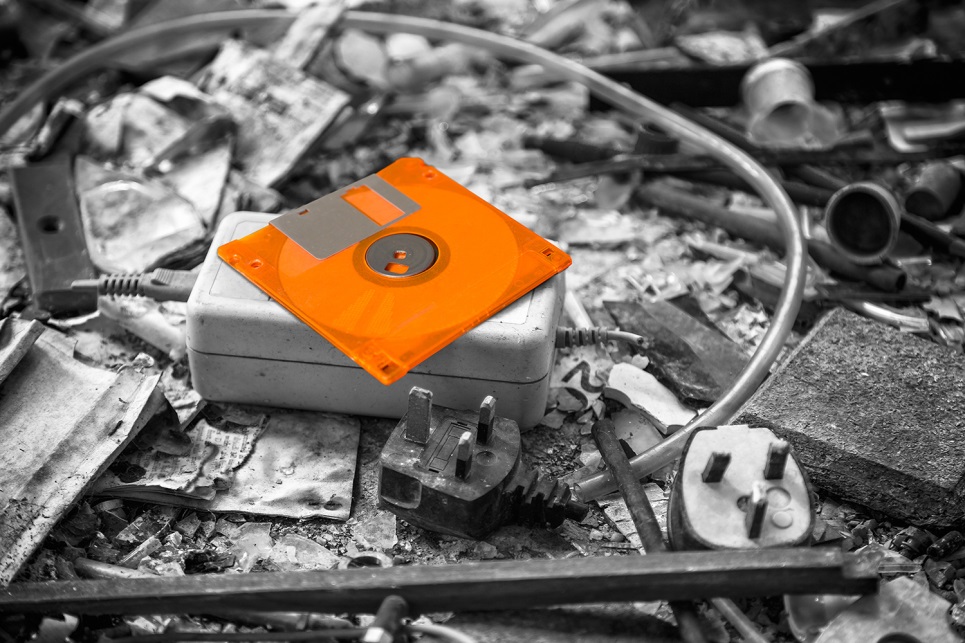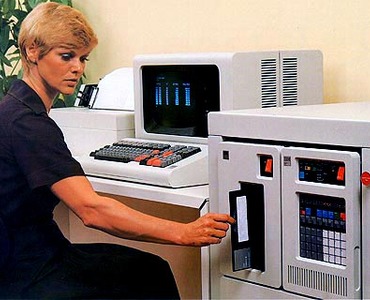
One of the justifications for last year’s $575 billion defense budget states that enormous levels of spending are needed to ensure America doesn’t lose ground in the perpetual technology arms race with other countries. However, according to a recent report from the General Accountability Office (GAO), much of the high-tech military equipment in the field today, including the various components of our nuclear weapons systems, is supported by some extremely antiquate hardware, namely the floppy disk .
A floppy disk—for those born in the 21st century—is an external storage disk composed of a thin and flexible magnetic storage medium, sealed in a rectangular plastic carrier that was used in the early days of domestic computers. Today, the floppy disk is immortalized as the save icon featured in modern software packages like Microsoft Office suite. Ironically, the eight-inch version of the relic can still be found in-use with the Department of Defense, as a means of running what’s known as the Strategic Automated Command and Control System, an important communications network used by the Pentagon to issue launch nuclear orders to commanders and to share intelligence. What’s more, eight-inch floppy disks have been produced with varying storage capacity, but the largest commercially available disks can hold up to 1,212 kilobytes—not even long enough for a 3-minute song.
In order to use the floppy disks, the military must also maintain a collection of IBM Series/1 computers. First introduced in 1976, the computers boast The Event Driven Executive Operating System, that was designed to “support entry level, performance oriented Series/1 hardware configurations [with] easy to use capabilities,” according to the IMB Series/1 Programming System Summary. The GAO says that $61 billion of taxpayer’s money goes on maintenance of their current “entry-level” computer systems every year.

Nonetheless, the advancements in defense technologies, the tried and true system offers a few advantages over newer alternatives, the biggest being that the old system in place is far removed from modern computing. Reliance on old fashioned floppy disks means that there’s no need for Internet connection, narrowing the possibility of cyber assault considerably.
Furthermore, making the switch to newer technologies is timely and expensive. “Integrating new technology requires exhaustive procurement and testing to ensure we comply with exacting and non-negotiable Department of Defense standards,” said a representative from the Unites States Air Force Global Strike Command.
Despite publicly standing behind the floppy, the GAO report defines plans to “update its data storage solutions, port extension processors, portable terminals and desktop terminals by the end of fiscal year 2017.”
Source: IFL Science, Stuff, Foxtrot Alpha, Digital Trends
Advertisement
Learn more about Electronic Products Digital





